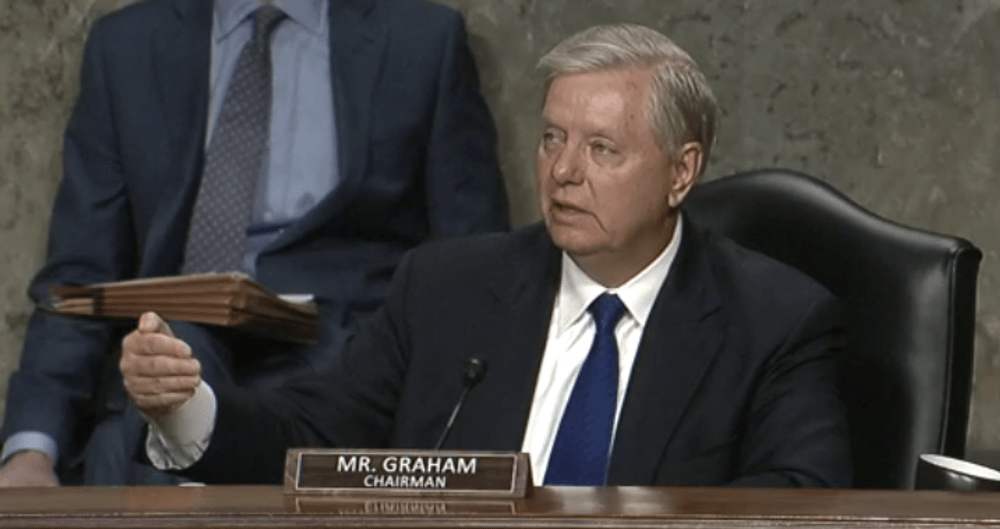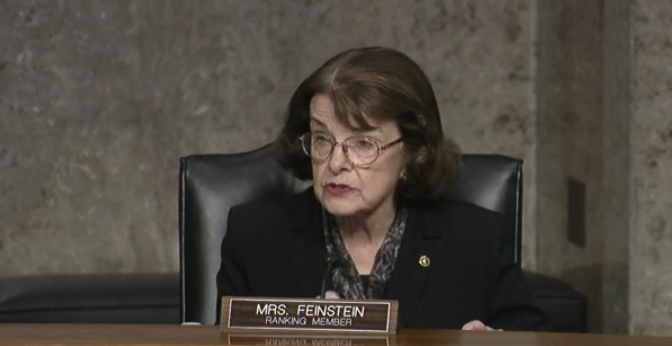Senate Judiciary Committee Teases, and Then Pulls, Bills Dramatically Narrowing Section 230 Protections
January 2, 2021 — When the Senate reconvenes on Sunday at 11:45 a.m., the body will gavel in for the first session of the 117th Congress. All bills not passed as of Friday, January 1, 2021 – the last day Congress was in session – will die. One of those bills is the Eliminating Abusive […]
Jericho Casper

January 2, 2021 — When the Senate reconvenes on Sunday at 11:45 a.m., the body will gavel in for the first session of the 117th Congress. All bills not passed as of Friday, January 1, 2021 – the last day Congress was in session – will die.
One of those bills is the Eliminating Abusive and Rampant Neglect of Interactive Technologies Act of 2020, or EARN IT Act, S. 3368, introduced in March by Senate Judiciary Committee Chairman Lindsey Graham, R-South Carolina. Among other provisions, the measure would have restricted the liability protection of Section 230 of the Communications Decency Act.
Somewhat obscured amidst the controversy surrounding President Donald Trump veto’s of the Defense Department’s budget over Section 230 were Graham’s maneuverings. He attempted to water down protections for social media companies through the EARN IT Act and through another measure, the Online Content Policy Modernization Act, S. 4632. Bill will die on Sunday.
Last-minute efforts to gut or scale back Section 230
Graham’s measures were more tactical, and in addition to Trump’s unsuccessful broadside. Trump’s veto of the Defense bill was over-riden by the Senate on Friday. The over-ride was one of the last actions of the 116th Congress. It was also the first time a Trump veto had been overturned.
On Thursday, December 7, during an executive session of the Judiciary Committee, Graham nixed a vote on the Online Content Policy Modernization Act., S. 4632, that would have scaled back Section 230 protections even more than the EARN IT Act.
Indeed, online services would be exposed to liability if they remove content outside a limited set of categories.
Graham’s S. 4632 would have removed from Section 230’s liability protections the catch-all phrase “otherwise objectionable content.” He said this phrase has become “a hole in the bill,” which allows social media platforms to censor conservative sources and content.
“If you took that phrase out, it would limit their ability to censor and edit,” said Graham. “That’s what this effort is, to take that out that phrase and replace it with some guidance.”
Criticism and support — but mostly support — for slamming social media
Critics of the EARN IT Act argue it is a misguided attack on internet speech, which would make it harder for online platforms to take common-sense moderation measures and shield only those which agree to confine their moderation policies to a narrowly tailored set of rules, agreed upon by legislators.
“The result of this Amendment would be to disincentivize platforms from removing filth online,” said
Ranking Member Dianne Feinstein, D-California, “Congress should not make it more difficult for social media services to fight disinformation.”
Feinstein said the Graham’s proposed EARN IT Act was premature as it had not had an adequate hearing before the Committee and that regulating Section 230 may be “more complicated” than any of the members suspected.
During the meeting, Sen. Josh Hawley, R-Missouri, introduced an amendment to the Act which would guarantee third-party users implied private rights of action, allowing private parties to bring a lawsuit to court, even though no remedy is explicitly provided in the law.
While Hawley’s proposed amendment did not pass, many agreed guaranteeing third-party users’ private rights of action will be critical to a final congressional revision of Section 230 that may well happen in the 117th Congress.
The majority of committee members maintained that many more hearings will be necessary before proposing reforms to Section 230. At the close of the meeting, Graham withdrew the bill, saying the mission of the legislation was accomplished, in the sense that it got the committee to talk about changes to Section 230.
“There will be work going forward,” said Sen. Richard Blumenthal, D-Connecticut, “but there is a message in this conversation: the days of Section 230 are numbered. There will be reform.”
“The days of non-responsibility of big tech are over” Blumenthal said, adding that “this should not be a partisan issue.”
Debate flares over what constitutes ‘filth’ online
Section 230 grants platforms liability protections for the decisions they make to moderate and remove online speech; platforms are free to decide their own moderation policies however they see fit. Yet there is widespread disagreement about what types of content are worthy of being removed from social media platforms..

“This bill urges tech companies to not sensor ‘inflammatory conservative social media content’”, said Senator Dick Durbin, D-Illinois. “The questions is: How do you define this?”
“What line will be drawn, and where?,” questioned Durbin. “Lawful but awful content, such as that put forth by the proud boys, which is white supremacist, misogynistic, and could incite violence, by nature — are we including this?”
While Durbin strictly opposed the idea of a Section 230 reform allowing hate speech to flourish online, Sen. Ted Cruz, R-Texas, said although he despises “Nazi ideology”, that he does not “want to silence them online.”
What Cruz referred to as an attempt by big tech to silence conservative voices, Sen. Sheldon Whitehouse, D-Rhode Island, called the effort of private companies to intervene in “powerful fraudulent disinformation campaigns” being employed by corporate interests against American citizens.
“To say you have to be fair” to all content, “misstates the question that we’re faced with,” said Whitehouse.
“In certain areas of public debate, there are very wealthy, very powerful special interests that have decided that the way to power in the United States of America is to run deliberate disinformation campaigns against and in their own country,” said Whitehouse, saying that the best example of this is the fossil fuel industry’s politicization of the issue of climate change.
“Now we see a similar disinformation operation run by the billionaires in right-wing media,” he said. “It is provenly false. For a company to be in a position to be able to say, ‘your crooked disinformation campaign has no platform here,’ I think is a legitimate decision on their part.”









Member discussion